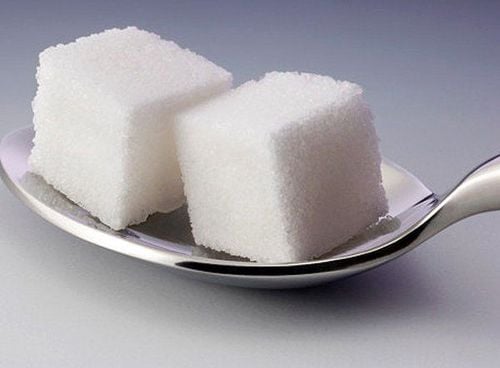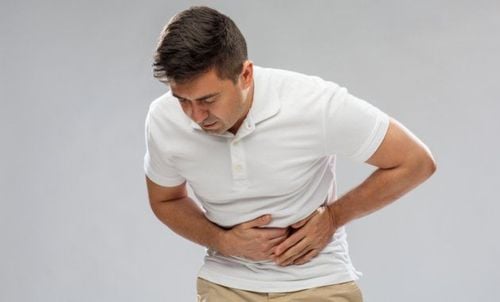This is an automatically translated article.
A low-carb diet is one that limits carbohydrates and increases the proportion of protein and fat in the diet (carbohydrates are found in foods such as grains, vegetables, and fruits). Low-card is often applied for the purpose of weight loss.1. Purpose of a low-carb diet
Low-carb diets are often used for the primary purpose of weight loss. Certain low-carb diets may offer certain health benefits from weight loss, such as reducing risk factors for type 2 diabetes and metabolic syndrome.Trắc nghiệm: Muối trong thực phẩm, natri, huyết áp và sức khỏe của bạn
Muối, natri là chất khoáng cần thiết cho cơ thể để duy trì hoạt động ổn định. Tuy nhiên, chế độ ăn thừa muối có nguy cơ cao dẫn tới các vấn đề sức khỏe nghiêm trọng. Cùng làm bài trắc nghiệm sau đây để hiểu hơn về những ảnh hưởng của các khoáng chất này tới huyết áp và sức khỏe bạn thế nào nhé.
Nguồn tham khảo: webmd.com
2. Why choose to practice a low-carb diet?
The reasons for choosing to practice a low-carb diet are many, can be:Want to practice a diet that limits the amount of carbohydrates absorbed into the body to lose weight. Want to change existing eating habits. Love low-carb foods in variety and quantity. Consult your doctor before practicing any weight loss diet, especially if you have pre-existing health problems, such as diabetes or heart disease.
3. Low-carb diet details

Carbohydrates can be simple or complex. Further classified, carbohydrates include the following forms: simple refined (granulated sugar), simple natural (lactose in milk and fructose in fruit), complex refined (white flour), complex natural ( whole grains, legumes).
Common sources of natural carbohydrates include:
Grains Fruits Vegetables Milk Nuts Seeds Sprouts Legumes (common beans, lentils, peas) Manufacturers Foods also add refined carbohydrates in the form of sugar or white flour to processed foods. Examples of foods that contain refined carbohydrates are white bread, pasta, cookies, candy, sugary sodas, and other beverages.
The human body uses carbohydrates as its main source of energy. Complex carbohydrates (starches) are broken down during digestion into simple sugars. They are then absorbed into the bloodstream, and are known as blood sugar - glucose. Generally, complex natural carbohydrates are digested more slowly and have less impact on blood sugar. Besides providing energy, complex natural carbohydrates also help muscles and other body functions.
Increased blood sugar levels stimulate the body to release insulin. Insulin is a hormone that helps glucose get into cells. Glucose is used by the body to generate energy for all human activities. Excess glucose is usually stored in the liver, muscles, and some other cells for later use or converted into fat.
The idea of a low-carb diet is that reducing carbs will decrease insulin secretion, causing the body to burn stored fat for energy, and eventually achieve the goal of weight loss.
4. Typical foods in a low-carb diet

The typical daily carbohydrate limit is 20 - 60 g, and this amount provides 80 - 240 calories. Some low-carb diets severely limit carb intake in the beginning, then allow for a gradual increase in carb intake.
However, compared with the Dietary Guidelines for Americans, it can be seen that carbohydrate intake should make up 45 - 65% of total daily calories. If you need 2000 calories per day, then 900 - 1300 calories should be provided by carbohydrates.
5. Results of a low-carb diet
Weight loss Most people can lose weight if they limit their calorie intake and increase their level of physical activity. To lose 0.5 - 0.7 kg a week, daily calories need to be reduced by 500 - 750.Low-carb diets can achieve short-term weight loss more effectively than low-fat diets fat. However, most studies show that at 12 and 24 months, the benefits from a low-carb diet are not great.
Cutting calories and carbs may not be the only reason for weight loss. Some studies show that protein and fat make the body feel full longer, thereby eating less, and also lead to weight loss.
Other health benefits Low-carb diets can help prevent or improve health problems, such as metabolic syndrome, diabetes, high blood pressure, and heart disease. In fact, most diets that cause weight loss are beneficial in reducing the risk of cardiovascular disease and diabetes, and improving blood cholesterol and blood sugar levels, even if only temporarily. time.
Low-carb diets may help increase HDL and triglyceride levels compared to a moderate-carb diet. The cause may not only be the amount of carbs eaten, but also the quality of the foods chosen. Good protein (from fish, poultry, legumes), healthy fats (mono and polyunsaturated fats), and unrefined carbs (from whole grains, legumes, vegetables, fruits, and low-fat dairy products) are healthy options.
6. Risks of a low-carb diet

Low-carb diets are also not nutritionally balanced, so they are not recommended for children, because children need enough nutrients to grow.
Current studies are not enough to conclude about long-term risks of low-carb diets. Before proceeding with any diet, consult your doctor for a suitable regimen for each case.
Please dial HOTLINE for more information or register for an appointment HERE. Download MyVinmec app to make appointments faster and to manage your bookings easily.
Article referenced source: Mayoclinic.org












